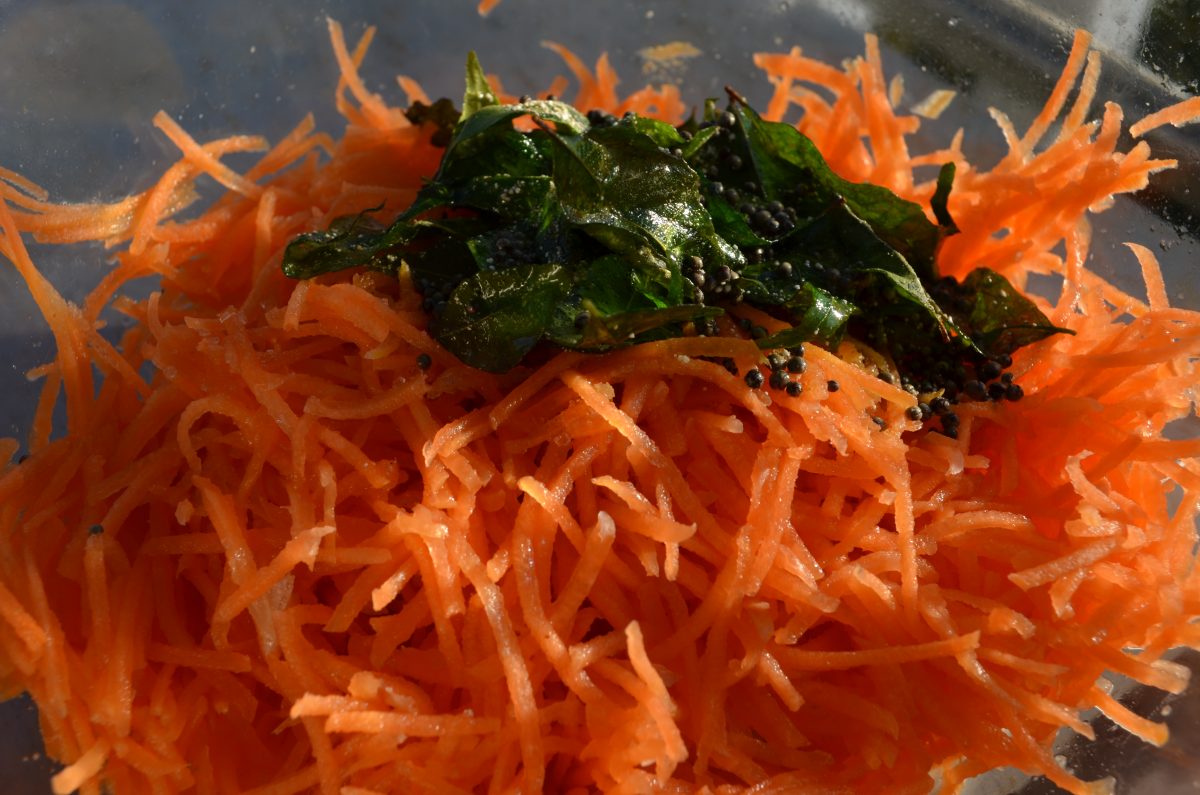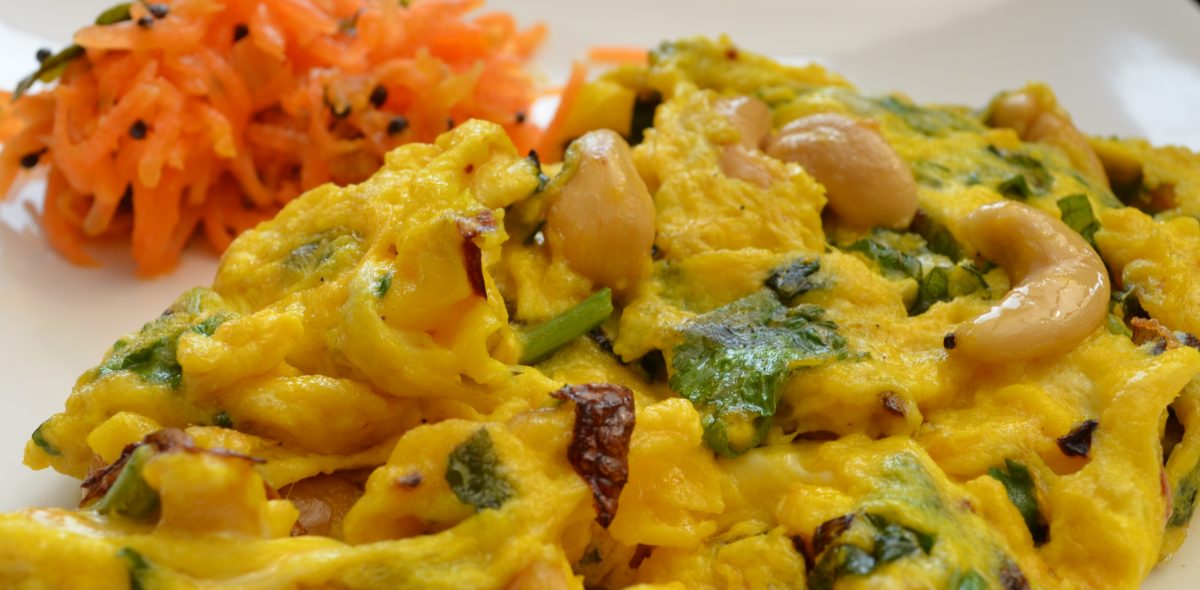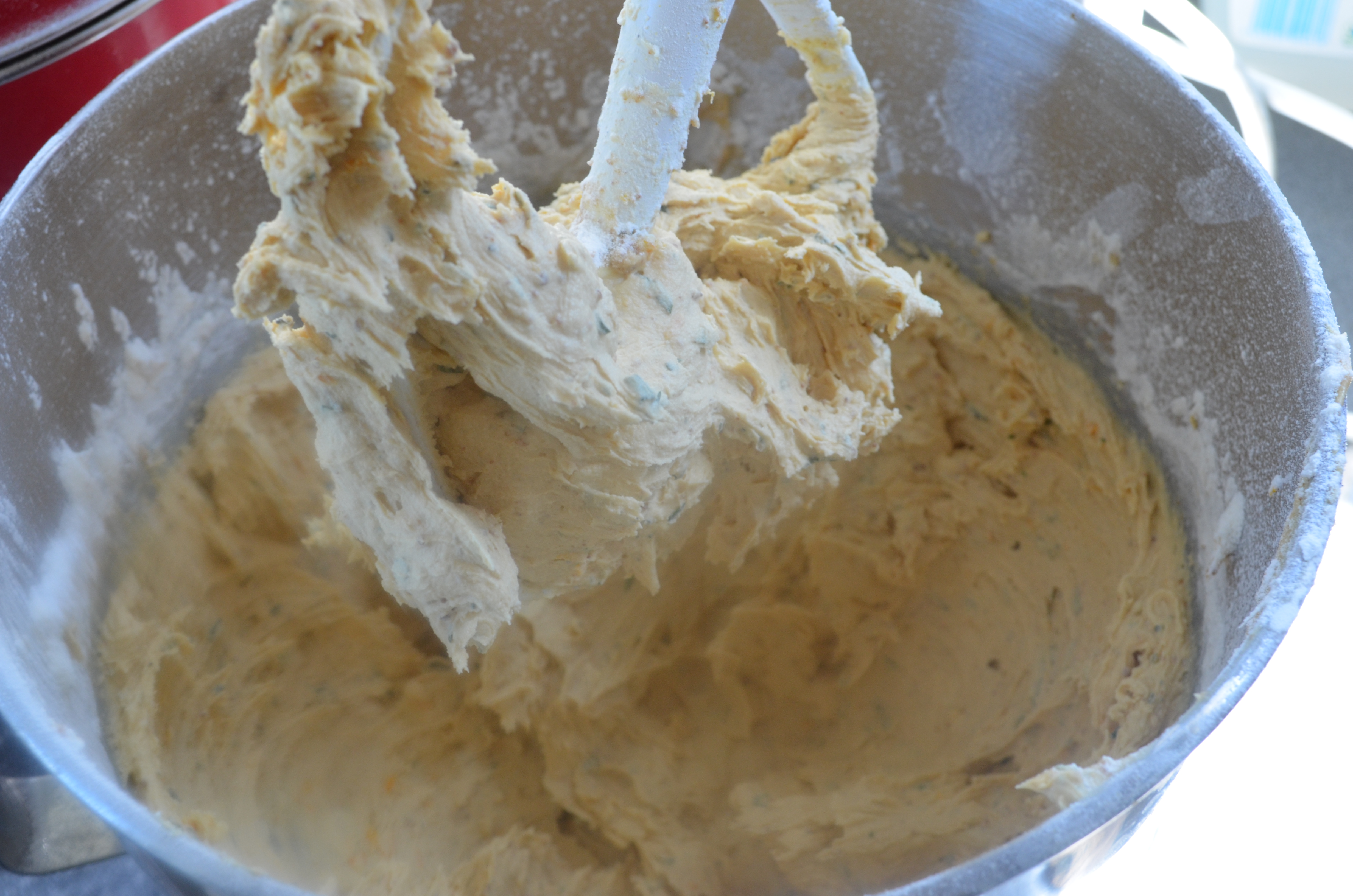Having bought a packet of fresh curry leaves from my local Indian supermarket, I was determined not to waste any. You can’t get fresh ones all the time (usually only dried) so I wanted to make the most of them.

Curry leaves do not taste like curry. They are called curry leaves because they are most commonly used in curries, particularly Southern Indian curries; not because they have a curry flavour. In fact the tree that grows these leaves belongs in the same family as oranges and lemons. The flavour is lemony without the fruitiness of citrus. Its mouth-watering acrid quality stimulates the taste buds.
My favourite carrot salad uses a good handful of fresh curry leaves. Although this dish looks very basic when served, the combination of a few key flavours makes something beyond the measure of its parts. We have been making this dish for about 20 years and we never get sick of it. It is light, tasty and refreshing
3 big carrots
juice from 2 or 3 limes
3 tablespoons of light oil (rice bran is good)
2 teaspoons black mustard seeds
Handful of whole curry leaves
1 heaped teaspoon of hing (asafoetida)
Grate the carrots in your food processor. Transfer them to a bowl and immediately pour the lime juice over the carrots. Add 1 teaspoon of salt and mix this all together. When you are about to serve heat the oil in a saucepan. When it is hot add the mustard seeds. When they start to pop give them a stir and then add the handful of whole curry leaves. They will crackle and shrivel a little. Finally add the hing and stir once more and then pour this hot oil over the limey carrots. Mix it together quickly so that the oil emulsifies with the citrus. Serve immediately. Though it is just as good the next day.

I also made my version of an akoori. This is an Indian scrambled egg dish. The curry leaves go really nicely with the eggs.
Chop up a shallot or a few spring onions. Mince some ginger to get 1 teaspoon. Finely chop up 1 green chilli. Chop fresh coriander to give 2 tablespoons. Slice up about 12 curry leaves. Heat some oil (sesame is nice) in a frying pan. Add the onions, ginger and chilli and stir it over a medium heat until the onions are soft. Add the curry leaves for a few seconds. Whisk 4 eggs in a bowl with a good pinch of salt. Add the eggs to the pan along with the coriander and 2 tablespoons cashew nuts. Gently scrape the egg as it cooks on the bottom of the pan so that the runny egg can move to the bottom. Keep gently moving the cooked egg up and out of the way until all of the runny egg is cooked. Flip onto a plate and serve.

I still had a heap of leaves left after these two dishes, so decided to make something a bit different, and to play on the citrus flavour of the leaves. I don’t eat a lot of sweet things, and almost never bake biscuits or cakes, but decided to have a go with the curry leaves. Inspired by Indiaphile’s curry leaf shortbread, I gave that a go but made mine a coconut, citrus and curry leaf shortbread.
220g soft unsalted butter
½ cup of coconut sugar,
zest of 1 orange
2 cups of flour mixed with a pinch of salt
about 15 curry leaves finely sliced
3 tablespoons of coconut chips
In a mixer beat together the butter, sugar, zest and curry leaves. Beat on a medium speed until it is light and fluffy and then slowly add the flour, a little at a time. Finally mix in the coconut chips to carry on the coconut flavour. Spoon this mix onto some gladwrap and roll it into a sausage shaped log.

Put in the fridge for an hour to harden. Heat your oven to 200°C. Take the log out of the fridge and slice into rounds. Put onto a greaseproof paper lined baking tray and put in the oven. Cook until golden (about 10 minutes). Place on a cake rack to cool and harden. They go really well with a nice cup of Earl Grey Tea or even better with an Aperol cocktail.


